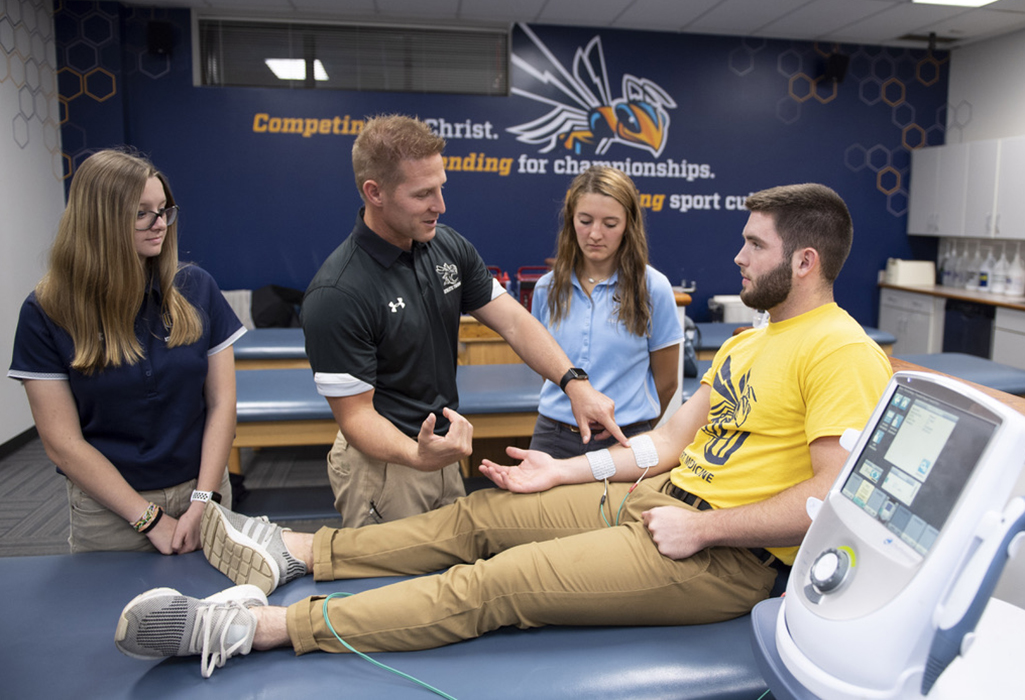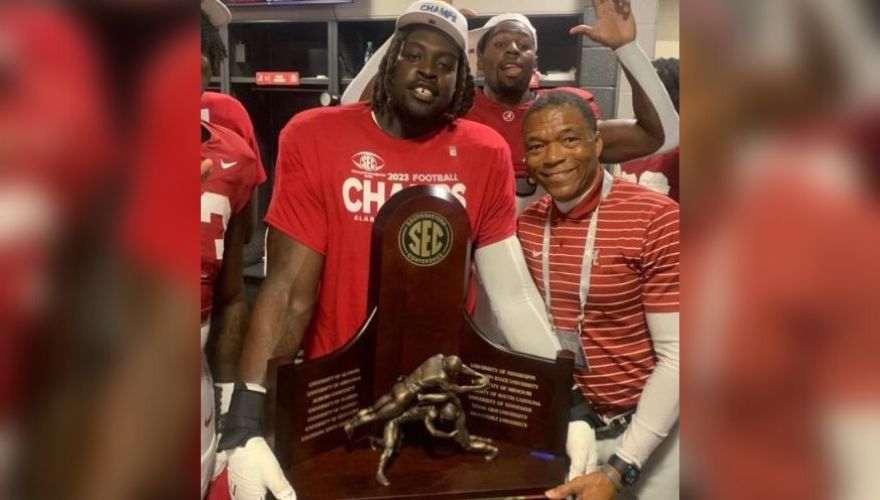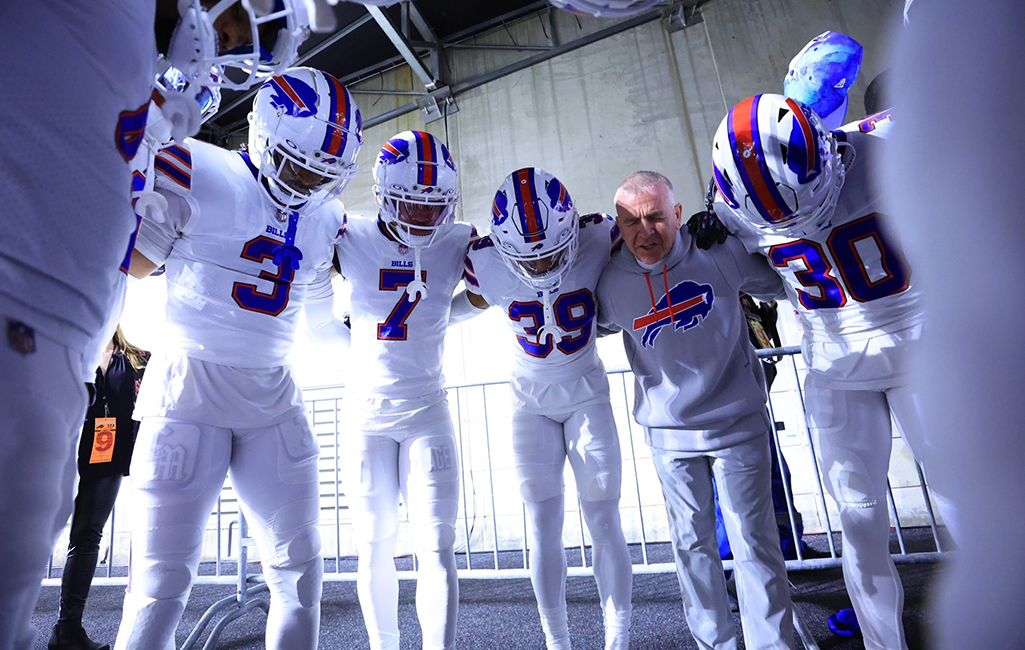
Wes Stephens, assistant athletic director for Athletic Training and Sport Performance at Cedarville University, instructs student trainers.
CEDARVILLE, Ohio – Damar Hamlin’s collapse Monday night in a nationally televised game between his Buffalo Bills and the Cincinnati Bengals pointed to the importance of on-field medical personnel. An athletic trainer’s impact, however, goes much further in helping mental and spiritual healing as well as physical.
Responses begin with physical trauma and recovery, but the process doesn’t stop there, those in the field told Baptist Press.
“Situations like Damar Hamlin’s are definitely a worst-case scenario for everyone involved,” said Wes Stephens, assistant athletic director for athletic training and sport performance at Cedarville University. “Even though rare, those situations are still one of the main focuses of an athletic trainer’s education and what we regularly prepare for.”
Such a scenario happened Monday night. After a routine tackle, Hamlin stood before collapsing to the turf with apparent cardiac arrest. ESPN reporters said he received CPR on the field for several minutes.
The NFL’s chief medical officer praised the response of on-site medical personnel.
“It’s certainly not an exaggeration to say that the skilled and the immediate response by all of these talented caregivers prevented a very tragic outcome at that moment,” Dr. Allen Sills said.
Time spent around the team before an injury can be crucial to long-term recovery.
“Athletic trainers play a vital role in the mental health of the student-athlete,” said Christopher Cross, Cedarville athletic director. “The relationship that has been built prior to an injury provides a unique opportunity to speak into the lives of the student-athlete.”
Those relationships extend to friends and family.
“It is a natural role as professionals to help guide appropriate questions, encourage that the athlete is being well taken care of, pray with loved ones and be ‘the calm in the storm’ when things feel crazy,” Stephens said. “We have usually built trust over time and through daily interactions, very different from other medical professions. We are approachable experts for the situation, so counseling often falls on our shoulders.
“It is something not taken lightly.”
Cedarville, affiliated with the State Convention of Baptists in Ohio, offers a Master of Athletic Training program geared toward students receiving national certification. A bachelor’s degree in sports medicine is also available.
His faith connects strongly with his profession, Stephens said.
“Knowing that the situation is in the Lord’s hands keeps me calm and focused on providing my absolute best care, while trusting the outcome to the Lord,” he said. “[It] calms my fears, provides confidence in care and wisdom for critical and immediate decisions.
“In our program, we talk about our profession as a ministry versus a job because of the role we get to play in the lives of our athletes. It is so personal and relational as we walk next to our athletes in a way few others in their lives do.”
That includes reminding someone he or she is more than an athlete.
“An athletic trainer’s faith in Christ [brings] a perspective of who we are and why we have value outside of athletics,” Cross said. “It is tremendously helpful in difficult times.
“Student-athletes’ identities and the identities that friends and family [place on] the student-athlete can be wrapped up in their athletic accomplishments. Athletic trainers are able to communicate that our value comes from the love of Christ.
“1 John 3:1 states, ‘See what kind of love the Father has given to us, that we should be called children of God.’ God loves us as children, not because of athletic accomplishments.”
(EDITOR’S NOTE – Scott Barkley is a national correspondent for Baptist Press.)


